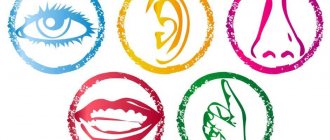Home / Psychology / What is internal freedom, how to develop it
Inner freedom is a concept that has always fascinated humanity . We all want to be free, but free from what? Do we really know what kind of freedom we are seeking, or how we can achieve that freedom?
We will use philosophy to study and understand freedom, with an emphasis on inner freedom, which is more important and more valuable than the physical freedom that is popular today. Inner freedom is the freedom of our mind, emotions and actions. What are these forces that prevent us from achieving inner freedom? What are the factors that hinder our free thinking, free feeling and free action?
Philosophy is seen as a way of knowing oneself in Ancient Greece and Rome.
We need to know about human nature in order to be able to deal with the problem of freedom. Knowing ourselves allows us to know how we think and feel, to recognize obstacles to inner freedom. Finding our humanity will help us discover the freedom we deserve.
Freedom is a state of mind and heart that does not depend on any circumstances or on a person, but not isolation or immobility. The concept of "dependency" plays an important role in the understanding of freedom. Being independent does not mean being isolated from people or actions that can cause things to change, rather than being dependent on conditions and other people for our thoughts, feelings and actions.
In relation to addiction, any attachment to a condition, object, status, career or person means a loss of our freedom, since the attached condition will determine how we think and feel.
Humans are in a constant battle over various internal forces, and freedom is the action that flows from our mind and free will among these many forces. Freedom does not mean controlling and managing these forces, but our intelligence and free will. What are these other forces: hatred, anger, envy, prejudice, mental and emotional habits, some of them are automaticity.
If we take anger as an example; when anger is present in our mind, it tries to control our thinking and actions, and if it does, then it begins to lead us in the direction it wants to go. He is trying to unload his destructive energy on something or someone.
How to resist anger?
We, as beings of reason and free will, must confront our anger rather than control it and eradicate it. How can we achieve this? First of all, being aware of our anger, recognizing the existence of this destructive emotion within us. And then we need to know more about it, how it prevails over us, what are the conditions that help it grow and bring it to power. Why does anger never help solve problems, why do we regret in the end when our actions were caused by anger?
By studying our inner world, we learn more about our internal “enemies” and we can develop more effective strategies to combat them. So
An idea that unites different traditions
Sufis say that one clear moment is enough. The Zen tradition asks the question, “What is missing at this very moment?” Jesus spoke a lot about a kingdom of wholeness and perfection. Modern Hindu teachers such as Sri Nisargadatta Maharaj and Papaji invite us to be calm and rest in the consciousness of 'I am'. "Sailor" Bob Adamson, an Australian disciple of Sri Nisargadatta Maharaj, asks the probing question: "What's wrong with you now that you're not thinking about it?"
Thinking can get in the way, agrees Paul Roach. Thinking is memories from the past and projected ideas about the future. As we know, reasoning articulates and then reinforces a linear view of reality based on the idea that the self moves through time. This sense of self, often called “ego,” is very conventional—it is not our reality.
And yet we often try to rely on it to find this very reality. We think that if we work hard enough or diligently and let go long enough, we will find a moment outside of time and find freedom.
Practice inner freedom - white flame, video
This amazing practice will help you gain inner freedom and trust in the world and begin to perceive events and situations as gifts. If performed regularly, it significantly increases spiritual vibrations.
Another example is our mental habits. We tend to think stereotypically, which is, of course, rather than thinking creatively and freely. These mental patterns can be developed by various factors such as society, religion, fashion, family, education, media, etc.
If we start thinking about how we have been taught by religion, advertising or society or fashion, we lose the ability to think freely because we are not thinking, but following a mental pattern that has a specific purpose for us.
We cannot be creative and innovative under the pressure of a mental picture of the world. We cannot see the different aspects and depth of a problem when we follow a mental schema.
News - good and bad
We should all finally accept that knowledge, no matter how subtle or deep, is not capable of awakening us to being in the “here and now.” There is no substitute for direct experience, Roach reminds us.
The good news is that the present is already there, right here and now. We are immersed in the ocean of infinite, timeless consciousness, like fish in water. The bad news is that linear thinking habits are hard to break. Proof of this is the long years that monks spend in meditation in search of satori, as do seekers who test the guru's patience with the same questions that arise from the desire to satisfy the needs of a distracted mind.
“Every day gets better and better,” says the spiritualized ego. “How is this possible if every moment is already perfect?” - asks the inner guru.
Superstitions as a mechanism for limiting freedom
Superstitions are extreme cases of mental patterns , where the mental image becomes so strong and deep in the mind. It is too difficult to get rid of the pressure of superstition. When we look at the history of mankind, we find some periods of suffering in which society is guided by some superstitions, such as in the Middle Ages of Europe. Superstitions also cause various types of fears that deprive us of freedom.
Free your thoughts
An internally free person differs from an unfree person in his thinking. Such an individual is able to easily control his own thoughts and emotions. If you are a dependent person, but this state of affairs does not suit you at all, start thinking like a free person. To do this, you will definitely need to pay attention to improving your personality. Of course, this internal work requires significant moral effort, and the result will not be visible as quickly as we would like. However, you should not stop there, but move forward. Eventually you will be able to control your mind.
What about prejudice?
Societies or people convert previous experiences into a mental image and start following it in similar circumstances. Prejudice prevents us from seeing things as they are because we see them through the lens of a psychic pattern engraved in our minds.
For example, a painful experience with a friend in the past can develop into a prejudice that makes us think that people are not trustworthy as friends. This bias prevents us from freely forming new relationships. This is the loss of freedom on the way to making new friends . Caution is different from blind prejudice.
You can see some tendencies in society that think a certain way on some subjects. Humanity is losing common sense, which is associated with the wisdom of society. For example, most people believe that happiness comes with buying a new car, a successful career, or a holiday.
We think in “concepts” or “patterns” that are defined by the media, religion, friends, society or education. And if we do not engage in research and study ourselves more deeply, we will wander like a herd...
Happiness from new acquisitions, from achieving a long-awaited career goal is very fleeting and quickly gives way to emptiness.
Freedom is now generally understood as physical freedom. Freedom to buy what you want, freedom to go anywhere, freedom to do what you want. But true inner freedom is to be free from generally accepted stereotypes of thinking and behavior imposed on us!
Another example is the term “philosophy,” which today has lost its classical meaning. Philosophy simply means the love of wisdom, but we tend to think of “philosophy” as a boring and useless thing, an intellectual pursuit away from practical life. We despise our friends, saying, “Don't philosophize,” when they speak beyond ordinary topics. We feel no need to waste time on philosophy because we see it as alienated and alien to life.
Losing freedom ends in suffering. Even when you look at the animal world, you can clearly see how painful it is for them to live in a cage or confined space. Birds have become a symbol of freedom in many ancient traditions; especially confining a bird into a cage, taking away its freedom to fly, does not make sense when we are so sensitive to our own freedom. We know the pain when freedom is lost, so why would we want to inflict the same pain on animals?
Self-discovery is a long but necessary journey that we all must take, and philosophy has been humanity's best company on this long and difficult journey. It is also a journey towards our inner freedom, which cannot be eliminated by any external factor or condition, but comes with self-knowledge.
Let us remember the famous motto of the Greek philosophers: “Know yourself,” make it a guide in your life to find out what kind of inner freedom we need .
30 Jan 2021 tolstoy_eco 2075
Share this post
- Related Posts
- Seven Ways to Heal Your Manipura Solar Plexus Chakra
- How to survive autumn easily and joyfully without focusing on the negative? it's simple, Olga Geyser's lifehack
- What prevents us from being happy?
- How to change yourself and your life with just a few free minutes a day
I stopped chasing perfection
I am perfectly beautiful and beautifully imperfect, and that is what allows me to be myself.
Perfection is an illusion; it does not exist. I stopped exhausting myself with the pursuit of perfection, and now I strive for “good enough.” I have learned to accept my mistakes as a necessity that accompanies growth and makes me wiser. If I fail at something, it doesn't mean that I'm a failure, I just minded my own business. We either win or we learn. But we never lose.
“Every time you feel better, it’s like a patient recovering. Just do your best under any circumstances and you will avoid self-judgment, self-deprecation and regret." (Miguel Ruiz)
I stopped competing with others
Now I know that my desire to fight was a manifestation of my ego, which needed self-examination. You don't have to know that someone else has lost to feel good. I love harmony, cooperation and win-win.
I stopped comparing myself to others. I choose to ally with people based on love, not fear, and I believe in success. I want to believe that we live in a supportive universe, with enough room for everything and everyone, including me.
“Love is cooperation, not competition.” (Wayne Dyer)
I stopped self-criticism
I pay attention to how I talk to myself. I don't call myself names, I treat myself with dignity and respect. I stopped telling myself things I would never say to a good friend. I am self-sufficient and self-worth.
I have come to understand that in life we do not get what we want. We get what we deserve according to our own opinion. That's why you need to believe in yourself and treat yourself as a person worthy of the best that life has to offer.
“You've been criticizing yourself for years and it hasn't worked. Try praising yourself and see what happens.” (Louise Hay)
Follow the voice of your heart
Reason, of course, was not given to man as a free application. But truly correct, fateful decisions are made from the heart. The mind only helps to form the desired image of the goal, weigh all the pros and cons, and give completeness to the desire emanating from the depths of the soul. But brushing aside good desires that lift us as if on wings above the earth’s surface is a big mistake. After all, it is through the heart that Christ calls us. It is in this mysterious part of our personality that all the most intimate things are stored; here lie the treasures of our potential, which we are obliged to obtain and use for their intended purpose. Following the voice of the heart makes a person freer, stronger, kinder, helps him open up and be happy. God speaks to us from the heart.
After the death of his father, Demetrius of Thessaloniki received the high position of parent. He was lucky enough to become the proconsul of his hometown with instructions to defend the fortress from barbarian raids and... exterminate Christians. I wonder how the saint’s father, a secret Christian, coped with this task? It can be assumed that he formally pretended to his superiors: they say, the work is going on, but there are no Christians, they have exterminated everyone, they are not caught... That is, the military leader could simply send fake reports to Rome. Dimitri was not like that. He used his position to the fullest, instead of persecution, using administrative resources and official position for the work of preaching, in which he was very successful. The man wanted to serve Christ, and instead of fearing for his position and position, he followed the voice of his heart, devoting all his creativity to fulfilling what he wanted.
I stopped judging others
I know that everyone has their own path and my job is to focus on my own goals. I also know that every time I evaluate other people, it is a reaction to something that bothers me about myself. If I think someone is narrow-minded, it means that perhaps I am too - otherwise how could I see it?
“Putting blame on someone else or judging their actions robs you of the opportunity to change yourself; Taking responsibility gives you that opportunity.” (Byron Katie)
I stopped building future happiness
I no longer rely on my happiness in an imaginary future, hoping that one day when I have a job, a house, a car and success, I will be happy. I have learned to find happiness in the small joys of life , and I admire the only reality that currently brings me a lot of joy.
I stopped waiting for the weekend to feel alive because every day is a gift and every moment is precious and equally important.
During the day I focus my attention not on the bad, but on the good, and everything changes. I am grateful for everything that happens around me and for everything that I have: a healthy body and mind, a loving family, several true friends, a job that I love and believe in.
“I noticed that the Universe loves gratitude. The more you give thanks, the more positive things happen.” (Louise Hay)











